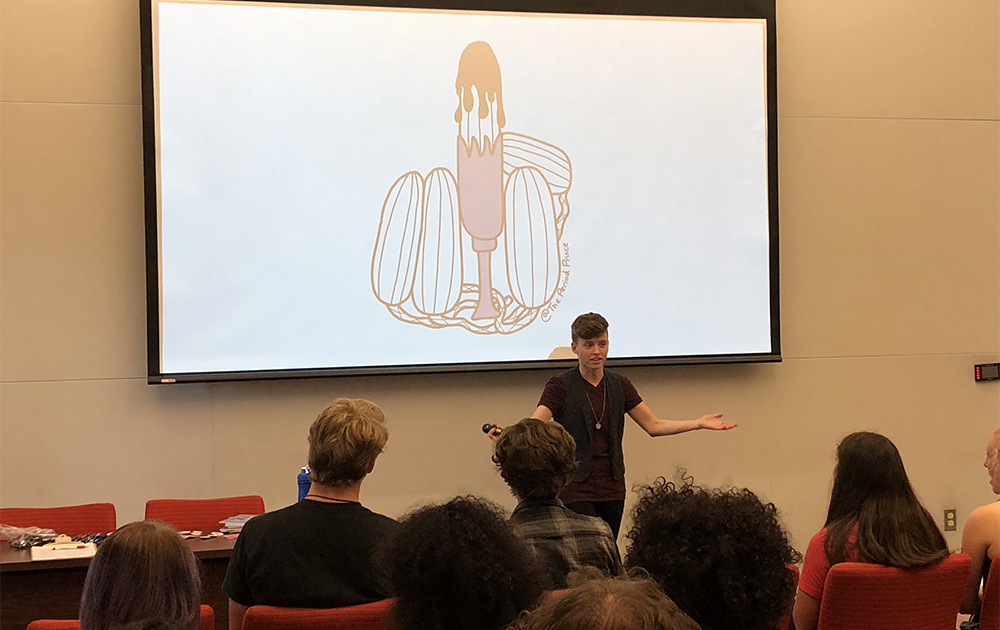Periods, Not Just for Women

Keilah Davis/Nubian Message
Kennysha Woods | Managing Editor
“Periods Aren’t Just for Women: Redefining Who Menstruates” was a presentation centered on dispelling the idea that menstruation is an experience limited to women and highlighting trans-inclusive period activism. This presentation was a part of NC State’s Diversity Education Week and was given on October 15 in Talley Student Union.
“A lot of my journey has been figuring out who I am,” said the presenter, Cass Bliss, “and that path crossed into what I do professionally. Most of these talks are an exploration of my own self, of me figuring out who I am and how I can talk to other people about what that means in a way that not only inspires you to search within yourself and think, ‘Who am I,’ but who are the people around me and how can I respect their identities?”
Bliss, also known as “The Period Prince,” is an illustrator, author and trans activist, and they’re known for promoting trans-inclusive period activism and founding the movement, #BleedingWhileTrans.
Bliss talked about issues they experience while on their period. One of these issues includes picking the bathroom that both affirms their identity and ensures their safety as a gender non-conforming person.
“The amount of times you go to the bathroom in a day—I didn’t notice it until I cut my hair and started presenting more masculine,” Bliss said. “I didn’t realize how much I had to pee in a day until I had to ask myself questions: Am I going to have a panic attack? Am I going to be attacked?”
Another issue stems from the gender coding of menstrual hygiene products. They’re often marketed with pink, feminine designs and packaging; in commercials, young, cisgender, white women are shown as the primary market.
“We use colors to designate whether or not someone is going to be read as a woman or man,” Bliss said. “There’s no real reason why… we code everything, and we package everything to fit a single story.”
Another issue is that many trans people are low-income and cannot afford or access menstrual health products. Although there are services that give out these products to low-income people, they expect women to utilize them, and gender non-conforming people are deterred from using that service in fear of outing themselves.
“Are you going to turn that person away?” Bliss said. “Maybe. Are you going to assume they’re getting it for someone else? Are you going to read them wrong?
“Are they going to have to out themselves to you? What kind of requirement is that? [One] that outs people and in really dangerous ways.”
There are fallacies surrounding trans-inclusive periods. Bliss talked about people suggesting testosterone as a solution to get rid of periods, but they often ignore how not everyone has access to or wants to take testosterone, and that testosterone can actually make periods worse for some people.
To make society into a space that’s more inclusive of trans and nonbinary identities, Bliss emphasized the importance of staying mindful of the lines we create and listening to everyone’s experiences.
“There are a lot of stories out there, a lot of stories from people like me,” Bliss concluded. “You just have to Google them.”
- Categories: